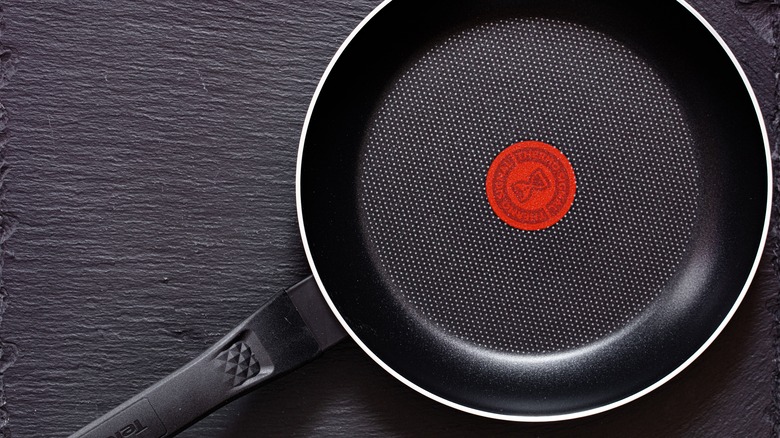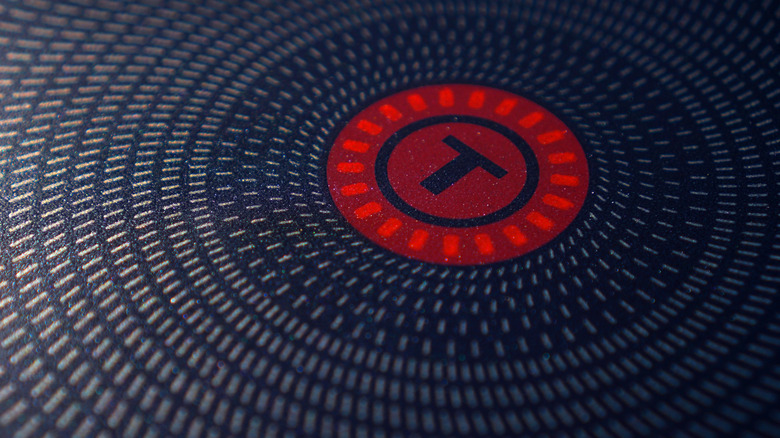Throw Your Teflon Cookware Away Immediately If You Notice This
Cooks across the country will forever be thankful to Teflon, an anti-stick coating that saves so much time in the kitchen. However, sadly this coating doesn't last forever. Eventually that helpful coating disappears and the pan becomes your typical piece of cookware and is an absolute pain to clean. For years, even professional chefs have gone against Teflon for this very issue.
"It's sort of like throwaway gear," Annie Smithers, chef-owner of Du Fermier in Victoria, Australia, told The Guardian. "No matter what quality they are, that coating wears off eventually and you throw them away," she explained. But depending on your cleaning process and how well you treat the cookware, a Teflon pan can actually last between six to 10 years according to Fiona Mair, home economist and head of the Choice kitchen lab.
Obviously, there's still a chance for the coating to dissipate during that time — especially it's exposed to metal utensils or even high heat. But how can you tell when your Teflon pan is on its way out?
Flaking is a sign that you should get rid of your Teflon cookware
According to Taste of Home, as soon as you notice "significant scratches" on the base of the pan, it's time for it to be thrown away. Teflon itself is the name of the coating used on the pan, which is also referred to as Polytetrafluoroethylene (via Orion Industries). The coating is made up of four chemicals — fluorspar, hydrofluoric acid, chloroform, and water. These are combined in a chemical reaction chamber and heated at extremely high temperatures to form the Teflon, non-stick coating.
If you see scratches on the pan, this means that the Teflon coating has "been compromised," per Taste of Home, and flakes of the chemical compound could be making its way into the food you're cooking in it. The site also suggests that replacing them every five years is a "good rule of thumb" to avoid this from happening, but you can also treat them with extra care by avoiding using a scrubber when washing pans with the coating and by using silicone or wooden utensils instead of metal as it's less likely to scratch the pan.
KitchenSeer also suggests that if the pan looks discolored, chipped, or warped, they should be "appropriately disposed of and replaced."

